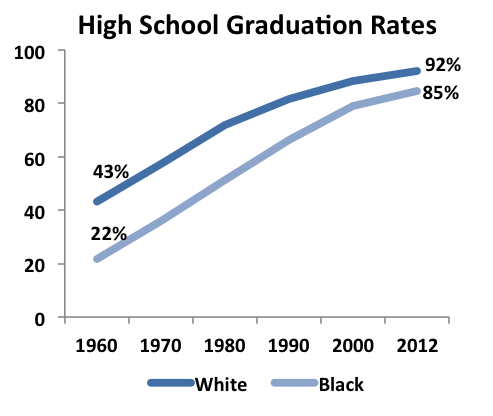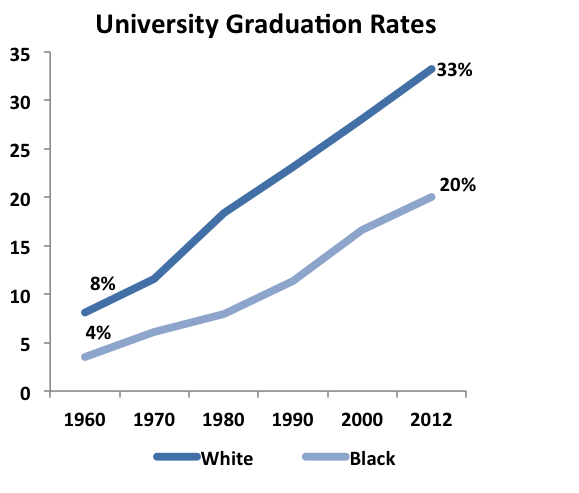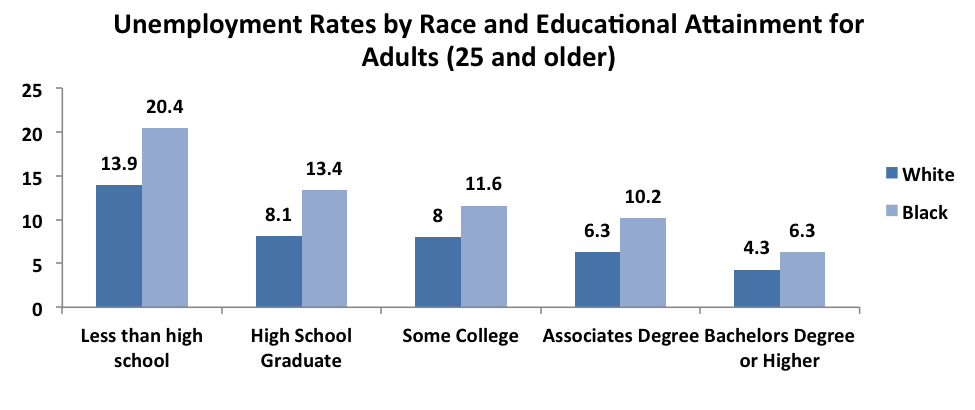Over the past 50 years, we've seen substantive improvements in high school graduation rates and college graduation rates for African Americans. But, African Americans' educational progress has not translated into equivalent economic progress. African Americans still do not receive equitable economic benefits on par with their education compared to white Americans.
Since the March on Washington, the number of African Americans over the age of 25 with a high school diploma has more than tripled. At this rate, African Americans' high school graduation rate will be equal to whites in the next five years.
But de facto segregation in the nation's schools remains. African American students are more likely to attend the poorest-performing schools with disproportionately impoverished student bodies. And 90 percent of de facto segregated schools experience concentrated poverty.
Source: U.S. Census Bureau, Education of the American Population (2012)
Despite these challenges, African Americans are advancing to college at ever-increasing rates. Since the 1960s, African American university graduation rates have quadrupled. In 1960, the Black graduation rate was 43 percent of the white graduation rate -- today it is more than 60 percent. But, even if this trend continues Black graduation rates in the United States will not be equal to white graduation rates until 2087.
Source: U.S. Census Bureau, Education of the American Population (2012)
And one of the most troubling aspects of higher education inequality is its economic dimension. A recent paper by Demos found that African Americans are 15 percent more likely to incur debt when obtaining higher education and 15 percent more likely to carry more debt on average. As a consequence, higher education debt is disproportionately weakening African Americans' retirement savings and household equity, key sources of wealth.
Source: Bureau of Labor Statistics, Current Population Survey (2012)
Also, regardless of educational attainment, according to the IES, African Americans earn less than whites and are more likely to be unemployed.
So while education is integral to strengthening African Americans' economic position. We still have much progress to make as education alone cannot bridge racial economic inequality.
This blog is the second entry in the series "50 Years after the March on Washington." To see the first blog on income and wages click here. Stay tuned for next post in the series, which will discuss the racial wealth divide in the United States.
Isabella Bronstein contributed to this series.


